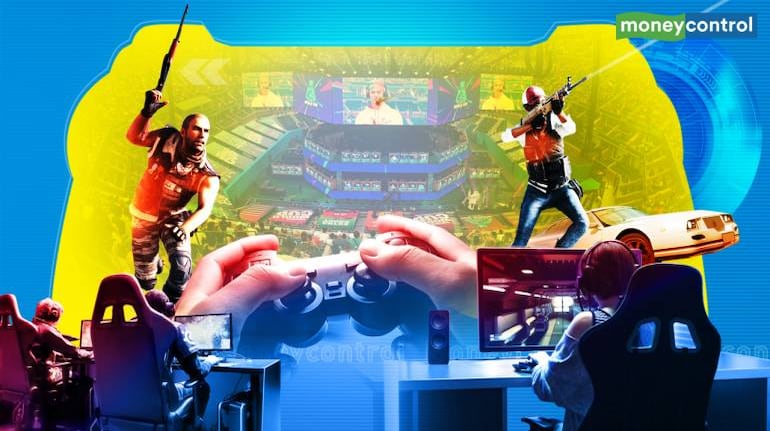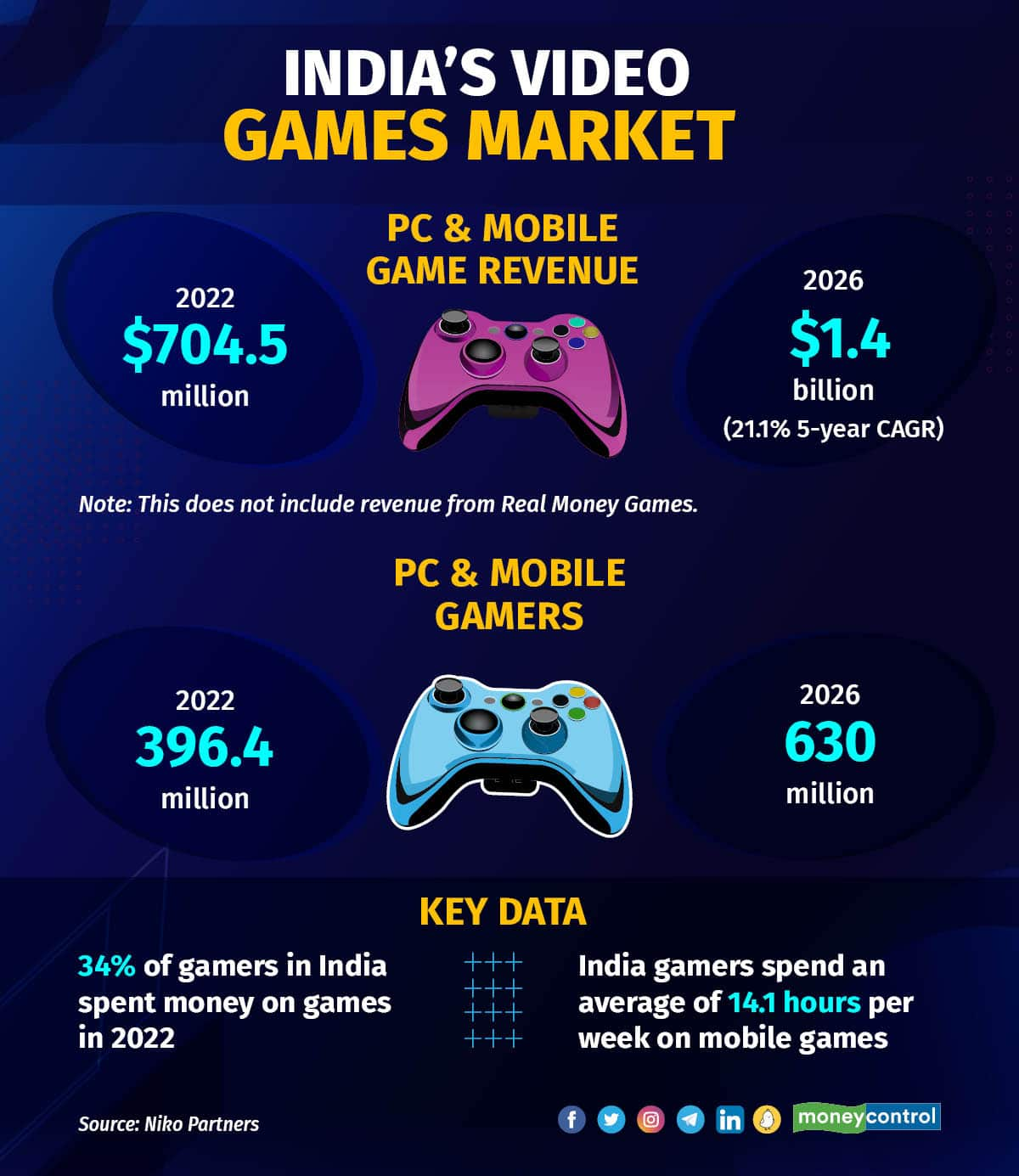



A consortium of over 45 Indian video game companies, including SuperGaming, OutlierGames, and Dot9Games, has written a letter to the Prime Minister's Office, the Ministry of Electronics and Information Technology, and the Ministry of Information and Broadcasting, seeking a clear distinction between video games and real-money games in India, in line with global standards.
This letter comes amid the ongoing debate over the GST Council's recent recommendation to levy a 28 percent tax on the online real-money gaming sector.
These tax rates do not apply to free-to-play and paid video games in the country, since they don't involve a staking or a wagering element. They are taxed at 18 percent GST rate which is already included in the app sales on Google Play Store and Apple App Store.
"Regardless of clear statements from the government following the GST row, there are campaigns that associate real money games (RMG) and fantasy sports with video games and Esports, both in front of domestic and international media as well as gamers. These campaigns project a homogenous image and suggest that the entire games industry of India is adversely affected by the government’s imposition of 28% GST," the letter read. Moneycontrol has viewed a copy of the letter.
Globally, a clear distinction has been drawn between video games and games involving wagering, which are categorised as iGaming, regardless of skill or chance. However, these mutually exclusive categories have been consolidated under the common umbrella term of "Online Games" in India, the companies said in the letter.
Due to this, international game corporations, publishers and investors are "under the impression" that the Indian regulatory system does not differentiate between video games and RMG/Fantasy Sports and applies blanket regulations to both industries, the companies claim.
"This has resulted in hesitation to invest in Indian video game companies and discouraged potential investments, co-productions, and strategic partnerships," the letter said.
The "negative sentiments and social stigma" towards games involving monetary wagering are "unfairly linked to video games" in Indian society, leading to "misconceptions about our industry’s products and services", it further read.
Among other companies who have signed the letter include Nodding Heads Games, Hitwicket, 99Games, Newgen Gaming, Hypernova Interactive, and Gameon Studios.
 A quick snapshot of India's video gaming market
A quick snapshot of India's video gaming market"Gamers know the difference between real-money gaming, fantasy sports, and video games. The rules should evolve to reflect these differences as well. This would ensure the best practices — and more importantly — protections for India's 500 million plus gamers," SuperGaming co-founder Roby John said.
"The Indian video games industry is thriving, with a focus on innovative R&D-driven productions and plans to release two dozen video games based on original IPs in the next five years, exporting Indian stories, character brands, and ethos globally," said Harish Chengaiah, founder of Outlier Games, who also organised this representation.
The consortium has now sought an audience to "share the views of the video gaming industry in detail and seek guidance on the way forward."
"Our earnest desire is to actively engage in a dialogue to work with the regulators to establish policies that recognize the unique characteristics of video games, promote investor confidence, and enable a safe and secure ecosystem for Indian gamers engaging in interactive entertainment arts," the letter read.
India is the fastest-growing games market in Asia, both in terms of revenue and gamers, with its mobile and PC gaming revenue projected to reach $704.5 million in 2022, according to Niko Partners, a market research and consulting firm that covers video games, e-sports, and streaming in the continent.
This is set to grow at a five-year compound annual growth rate of 21.1 percent to touch $1.4 billion in 2026. This does not include revenue generated by real money games. About 34 percent of gamers in India spent money on non-RMG titles in 2022, the firm said.
Read: Indian gaming studios see big action in 2022; take bolder, ambitious bets
Investors, real-money firms seek GST reliefThe letter from gaming studios come after investors and skill-based gaming firms have approached the government in recent weeks, requesting them to reconsider GST Council's proposal to levy 28 percent tax on the full value of pool deposit.
A group of 30 prominent domestic and international startup investors, including Tiger Global, Peak XV Partners, and Steadview Capital wrote to Prime Minister Narendra Modi, stating that 28 percent GST on online real-money gaming could lead to a potential write-off of the $2.5 billion in capital invested, as well as the loss of over 50,000 high-skilled jobs, Moneycontrol reported on July 21.
The investors said that the current GST proposal will set up the "most onerous tax regime for the gaming sector" across the world.
Prior to this, a group of around 130 real-money gaming startup founders, CEOs, and industry associations had written an open letter to the government, requesting them to reconsider the GST levy, Moneycontrol reported on July 15.
The real-money gaming segment accounted for 77 percent of India's gaming sector revenues in 2022 which stood at Rs 13,500 crore, as per a recent FICCI-EY report. These revenues are set to grow to Rs 16,700 crore in 2023 and Rs 23,100 crore in 2025, it said.

Discover the latest Business News, Sensex, and Nifty updates. Obtain Personal Finance insights, tax queries, and expert opinions on Moneycontrol or download the Moneycontrol App to stay updated!
Find the best of Al News in one place, specially curated for you every weekend.
Stay on top of the latest tech trends and biggest startup news.